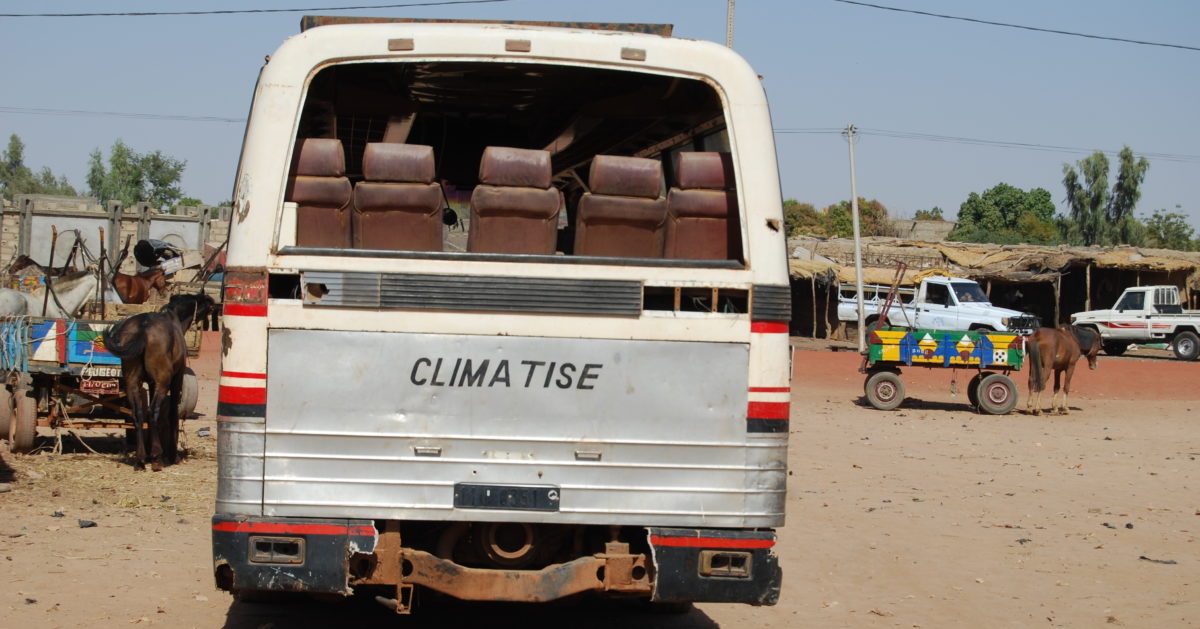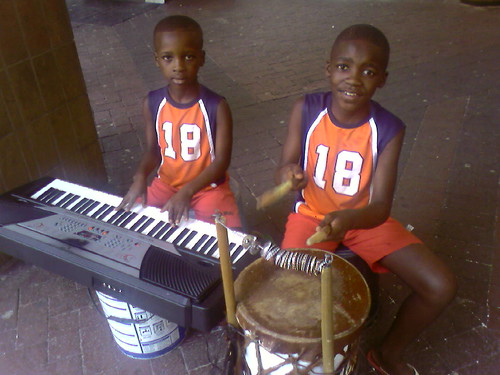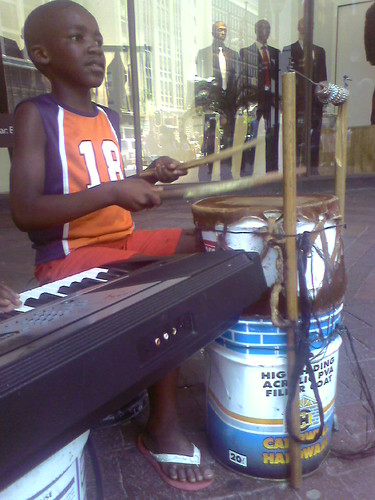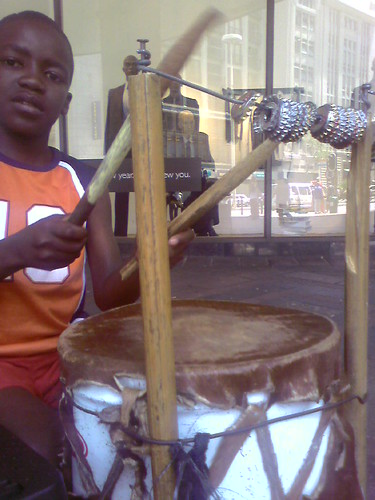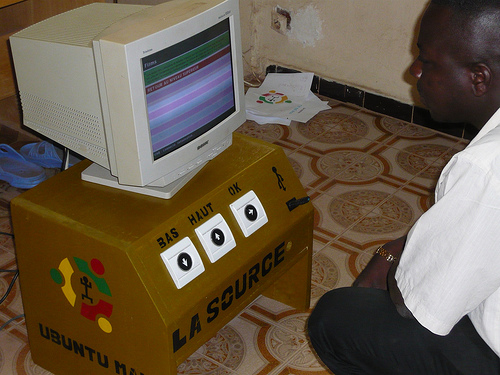Maina, Rhoda and little Winnie are a typical Kenyan family who live on the outskirts of Nairobi in an area that has no electricity.
But they have solved the problem of getting the daily news
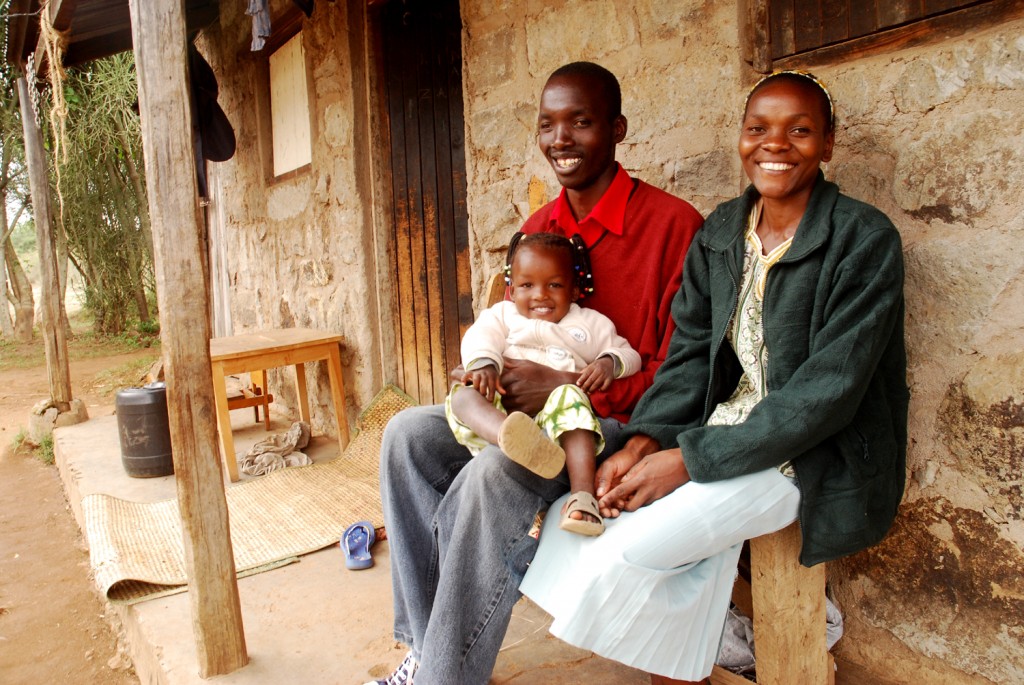
When I visited their home I was impressed that despite the lack of electricity, Maina has come up with an innovative solution and is able to keep up with whats going on and listen to his favourite Kikuyu music all day long!
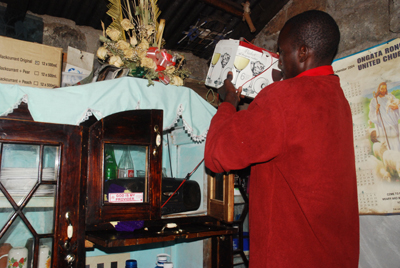
Here’s a better look at the system – a second hand car battery hooked up directly to his radio
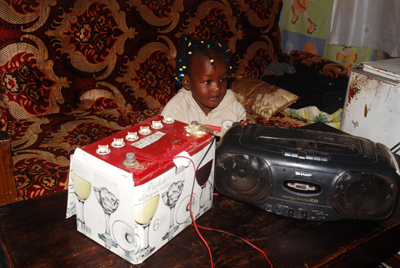
The wiring is simple

Fully charged the battery last 2 weeks. To recharge Maina has to take it to a place in town for 24 hours at a cost of Ksh 50 (about 80 cents US. If he were to use ordinary batteries Maina would be paying several hundreds of shillings per month (15$) and creating toxic waste with their disposal (Kenya has no battery disposal system). No wonder used batteries are in such huge demand!
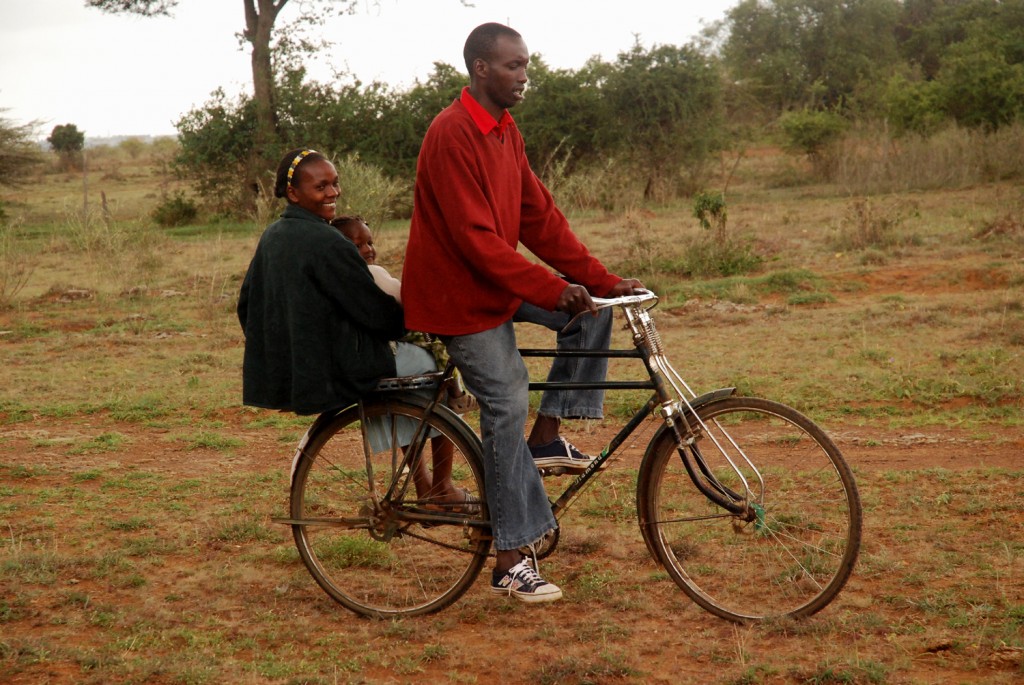
And no wonder this family is smiling!
I’m wondering how much it would cost to hook up Mainas battery to a solar panel and some lights. They currently depend on hurricane lamps. Powered with kerosene these are not only a weak source of light but are dangerous and prone to cause fires.
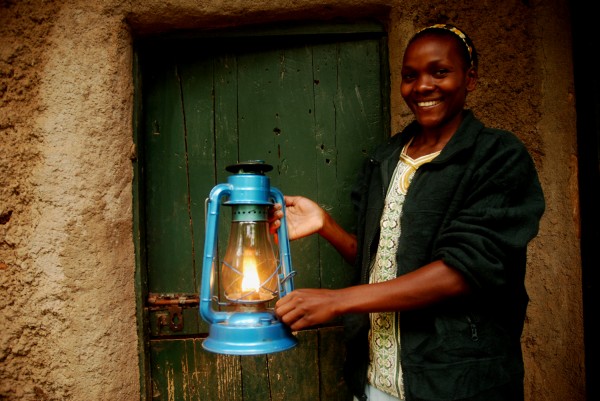
Got any ideas anyone – can we charge a car battery from solar?
Post note: This story was found while making a video slideshow about this average Kenyan families carbon footprint for WildlifeDirect.

